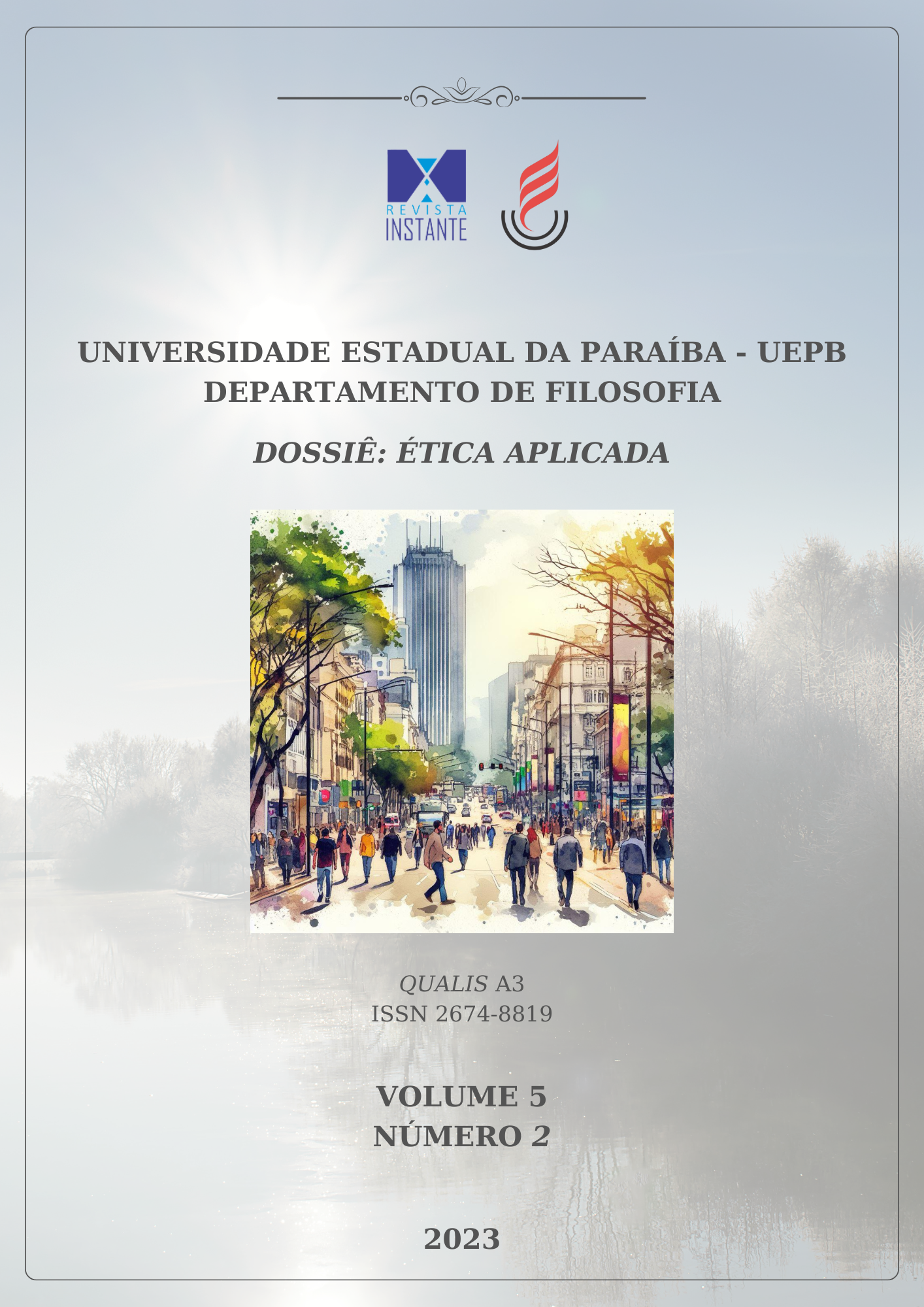IMPLICATIONS OF THE CONCEPTIONS OF HUMAN AND NATURE IN ENVIRONMENTAL POLICIES
Abstract
This paper aims to analyze the role of the production of subjectivity in environmental policies, indicating the economic, social and environmental implications of symbolic operations. Two divergent perspectives will be approached, drawn from the comparison proposed by Bruno Latour between Galileo Galilei and James Lovelock. On one hand, that of “capitalist realism”, presented according to Fisher and contextualized by Quijano, Grosfoguel, Deleuze and Guattari, in which the notion of individuality is split from the environment and from society and leads to the objectification of natural and human resources. In the other hand, that of “buen vivir”, presented according to Acosta and contextualized by Guattari, Danowski and Castro, in which interdependence turns any natural process into a legitimate political subject, as proposed by the Gaia theory and the amerindian anthropomorphism. The comparison between such perspectives reveals how the conceptual mode of operation alters the elements in question. The bifurcation of nature, origin of the first perspective, is surpassed by recent scientific advances, such as the structural coupling of the embodied mind, core of the second perspective, requiring a paradigmatic revision of the economy in favor of systemic benefit.
References
ACOSTA, A. O bem viver. Uma oportunidade para imaginar novos mundos. Trad. Tadeu Breda. São Paulo: Ed. Elefante, 2016.
CREMA, R.; WEIL, P.; LELOUP, J.-Y. Normose, a patologia da normalidade. Petrópolis: Editora Vozes, 2014.
DANOWSKI, D.; CASTRO, E. V. Há mundo por vir? Ensaios sobre os medos e os fins. Florianópolis: Desterro, 2014.
DELEUZE, G. ; GUATTARI, F. “7000 A.C Aparelho de Captura” in: Mil Platôs - Capitalismo e esquizofrenia. vol. 5 Trad. Janice Caiafa. São Paulo: Editora 34, 1997.
FAUCONNIER, Gilles; TURNER, Mark. The way we think. Conceptual Blending and the mind’s hidden complexities. New York: Basic Books, 2002.
FISHER, M. Realismo Capitalista. É mais fácil imaginar o fim do mundo que do que o fim do capitalismo? Trad. Rodrigo Gonçalves, Jorge Adeodato, Maikel da Silveira. São Paulo: Editora Autonomia Literária, 2020.
GUATTARI, Félix. Caosmose. Um novo paradigma ético estético. São Paulo: Editora 34, 2012.
________. As três ecologias. Trad. Maria Cristina F. Bittencourt. Campinas: Papirus. 1990. Disponível em:
https://edisciplinas.usp.br/pluginfile.php/5290521/mod_resource/content/1/guattari-as-tres-ecologias.pdf Acesso em 10/02/2022
GROSFOGUEL. R. Racismo/sexismo epistémico, universidades occidentalizadas y los cuatro genocidios/ epistemicidios del largo siglo XVI. In: Tabula rasa. Bogotá. n.19, p. 31-58, 2013. Disponível em:
http://www.revistatabularasa.org/numero-19/02grosfoguel.pdf. Acesso em: 21/11/2019.
JOHNSON, Mark. The body in the mind. Bodly basis of meaning, imagination, and reason. Middletown: The Universitiy of Chicago Press, 2016.
JUNIOR, J. G. S; MICKUS, R. Z. Os demônios de Nick Land: uma especulação introdutória sobre aceleração e hiperstição. In: DasQuestões vol. 12, n.1, pp. 229-252, 2021, Disponível em:
https://periodicos.unb.br/index.php/dasquestoes/article/view/34909 Acesso em 05/01/22
KASTRUP, Virgínia; TEDESCO, Sílvia; PASSOS, Eduardo. Políticas da Cognição. Porto Alegre: Editora Sulina, 2015.
LATOUR, B. Diante de Gaia. Oito conferências sobre a natureza no antropoceno. Trad. Maryalua Meyer. São Paulo: Editora Ubu, 2020.
LAKOFF, George; JOHNSON, Mark. Philosophy in the flesh. The embodied mind and its challenge to western tought. New York: Basic Books, 1999.
MANCE, E. A. O Capitalismo Atual e a Produção da Subjetividade. In: VI Semana de Filosofia da UFES. São Mateus, 1998. Disponível em:
http://www.solidarius.com.br/mance/biblioteca/subjetividade.htm Acesso em: 21/11/2019.
MARTINS, R. F. A bifurcação da natureza: história, exemplificação, definição e crítica na filosofia whiteheadiana. In: RECIMA21- Revista Científica Multidisciplinar v.2, n.4, 2021. Disponível em:
https://recima21.com.br/index.php/recima21/article/view/224 Acesso em: 15/12/2021
QUIJANO. A. Colonialidad y modernidad/racionalidad. In: Perú indígena. Lima. vol.13, n.29, pp.11-20, 1992. Disponível em:
https://www.lavaca.org/wp-content/uploads/2016/04/quijano.pdf. Acesso em: 21/11/2019.
QUIJANO. A. Colonialidade do poder, Eurocentrismo e América Latina. 2005. 27 p. Disponível em:
http://bibliotecavirtual.clacso.org.ar/clacso/sur-sur/20100624103322/12_Quijano.pdf. Acesso em: 21/11/2019.
SANTOS, B. S; ARAÚJO, S; BAUMGARTEN, M. As epistemologias do sul num mundo fora do mapa. In: Sociologias. Porto Alegre. Ano 18, n.43, pp. 14-23, 2016. Disponível em:
https://www.scielo.br/j/soc/a/Y3Fh6D3ywMCFym4wMFVdzsq/?lang=pt Acesso em 27/01/2022.










